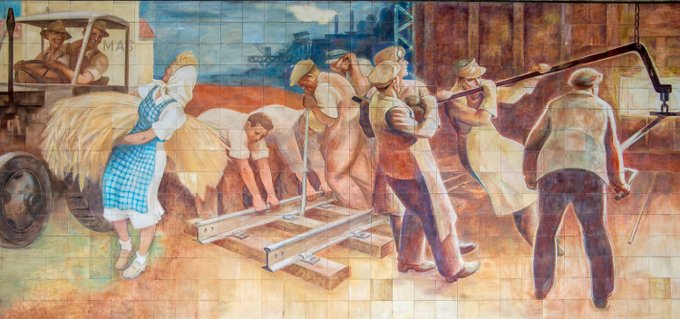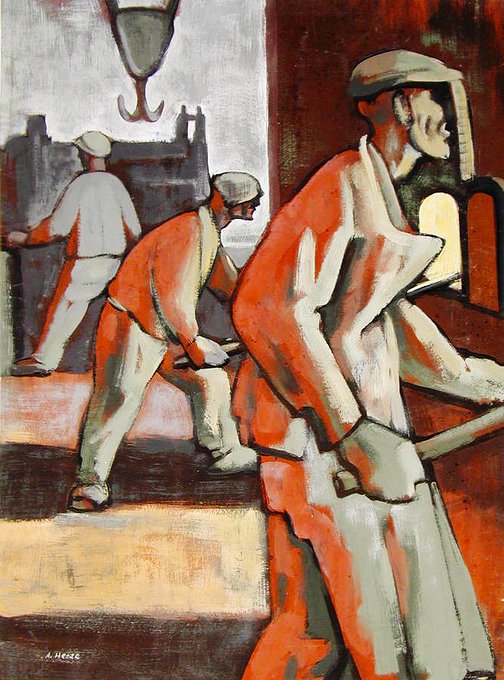The art collection of former uranium ore mining company SAG/SDAG Wismut (currently Wismut GmbH) encompasses some 4,200 works of art, including 259 paintings, by more than 450 artists. Hans Hattop (1924-2001). Uranium, 1970's. Foto: Andreas Kämper
Lingner's wanted to address "the importance of peace for the cultural development of mankind and the necessity of fighting for it". The mural shows politically active groups like FDJ members, musicians, young pioneers, Volkspolizei, civil servants, and skilled workers.
Arno Rink (German, 1940 – 2017). Terror I, 1973. Oil on canvas, 60x73 cm. Städel Museum, Frankfurt am Main. In both Terror I and II Arno Rink conveys the state violence that ensued during the leaden years of the Deutscher Herbst (the German Autumn) in the #BRD.
Paul Michaelis (German, 1914 - 2005). Lebensfreude (Joy of Living), 1977. Oil on canvas, 150 x 200 cm. State Art Collections Dresden, New Masters Gallery. #DDR #Sozialismus #Lenin
Rudolf Bergander (German, b.1909-d.1970) Hausfriedenskomitee (Peace House Committee), 1952. Oil on canvas, 130x170 cm. Museum of Fine Arts Leipzig. A group discusses the news of the Neues Deutschland in the headquarters of the Sozialistische Einheitspartei Deutschlands (SED).#DDR
Alfred Hesse (1904-1988). Clearance/ End of Working Day in the Rubble, 1949. Tempera and casein, 53x42, and 45x65cm. State Art Collections Dresden. After his captivity, Hesse returned to destroyed Dresden in 1946, committing himself to the construction of a new socialist society.
He worked with Heinz Hamisch and Rolf Krause on this mural that, unfortunately, did not survive.
In Memento España (1975-76), Gerhard Kurt Müller (1926 - 2019) touches again ten years later on the theme of the Spanish Civil War. Triptych: side panels 195 x 90 cm, middle panel 195 x 260 cm. Oil and tempera on masonite. Museum of Fine Arts Leipzig #DDR
Günter Thiele (German, b.1930). Brücke in Plagwitz (Bridge in Plagwitz), 1969. Mixed technique on canvas, 99,5 x 119 cm. Museum of Fine Arts Leipzig.















